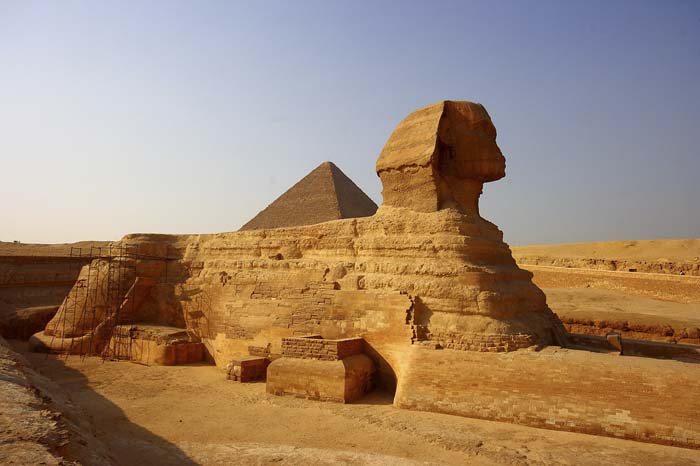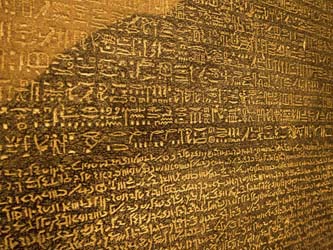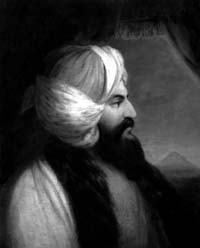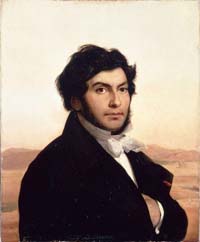Egyptology & Archaeology
When it comes to ancient history, a lot of digging is involved in trying to understand the motivations and lives of the people who came before us. In the case of Egyptology, the work is lessened in some respects: many of its monuments and buildings are still very much intact. With pyramids and temples everywhere, as well as the Valley of the Kings, there are plenty of places to find history.
Egyptology Definition
Ancient Egyptian civilization has a history going back to around 3,000 BC. Egyptology is the study of this history in regards to the language, religion, art, literature and architecture up until about 400 A.D. which marked the end of hieroglyphic writing. An Egyptologist is anyone who practices or studies Egyptian antiquities.
History of Egyptology
Because ancient Egyptian history goes back thousands of years, the first Egyptologists were actually the ancient Egyptians themselves. Thutmose IV, who reigned during the 18th Dynasty in the 14th century B.C., is considered to be one of the first Egyptologists. When he ruled, the Egyptian civilization was already two millennia old, and he restored the Sphinx which at the time was already around 1,000 years old.

© Dominik Dome - The Sphinx at Giza
Prince Khaemweset, the fourth son of Ramses II, is also considered to be one of the very first Egyptologists. He lived during the 13th century B.C. and he is best known for restoring historic buildings, temples and tombs.
The first historical accounts of Egypt came from the ancient Greeks including Strabo, Herodotus and Diodorus Sciulus. Manetho, an Egyptian priest and historian who lived during the 3rd century B.C., wrote the Aegyptiaca, “History of Egypt.” The Ptolemies are also credited with restoring many monuments including the pyramids.
Modern Egyptian history begins with Napoleon Bonaparte’s conquest over Egypt around 1800. This event sparked considerable European interest in the study of Egyptian antiquities.

© Thomas Quine - Detail of the Rosetta Stone
Famous Egyptologists

Howard Carter
There have been thousands of Egyptologists over the millennia. Although not the father of Egyptology, Howard Carter is one of the most well-known. In November of 1922, he discovered the tomb of the boy king, Tutankhamun. An Englishman, Carter was given one last opportunity by his financier, Lord Carnarvon, to find King Tut’s tomb. Carter’s excavation group finally uncovered steps that led into the famous king’s tomb. It was the most intact and best preserved tomb ever found in the Valley of the Kings.
Discover more about Howard Carter

Giovanni Belzoni
Italian explorer and archaeologist, Giovanni Battista Belzoni, also known as The Great Belzoni, lived and made his discoveries around 1800. An especially tall man at 6’7”, he is known for gaining entrance to Abu Simbel and transporting the bust of Ramesses II to England (at seven tons, this was no small task). Belzoni was the first to get inside the second pyramid of Giza, and he is also credited with the discovery of the tomb of Seti I.

Jean-Francois Champollion
Jean-Francois Champollion made an enormous contribution to Egyptology by deciphering the hieroglyphics on the Rosetta Stone. Because of this, he is often referred to as the Father of Egyptology. Without his deciphering, there is no way scholars at the time, or after, could hope to fully understand the ancient Egyptians. Deciphering the hieroglyphs took years of research which included many years of studying arcane languages, as well as scholars in the field contributing to his eventual goal.
Other Famous Egyptologists
- Englishman, James Burton, excavated Medinet Habu, Karnak and many tombs in the Valley of the Kings in 1825. He published a book on hieroglyphic inscriptions in 1828. His drawings are useful even today in comparing the condition of the tombs then and now.
- Englishman, Ernest Budge, published several books on Egyptology which spread fascination for the ancient culture.
- Auguste Mariette, Frenchman, uncovered the tomb of Prince Khaemweset (Ramesses II’s fourth son). He is known for exploring dozens of sites including the Edfu and Dendera temples, the necropolis of Meidum, the pyramid fields of Memphis and many more.
- Selim Hassan, Egyptian, worked on excavations in the necropolis at Giza. He published a ten volume study about the results of his archaeological digs.
- Zahi Hawass, Egyptian, is one of the most famous modern Egyptologists. He has worked on excavations at Giza, specifically the Great Pyramid, and the Western Oasis. He was named Chairman of the Supreme Council of Antiquities in Egypt by the Ministry of Culture.
- Jean-Phillipe Lauer, Frenchman, worked for 70 years at Saqqara in the pyramid field. Lauer was a leading expert on pyramid construction methods and techniques.
- Mark Lehner, American, one of the most famous modern Egyptologists. He has worked closely with Hawass in the past. He directed the Giza Plateau Mapping Project and authored “The Complete Pyramids of Egypt” and other writings. He is considered to be the leading authority on pyramid complexes.
Egyptology Facts
- Egyptian history is considered to have started in 3200 B.C. This is when King Menes united Upper and Lower Egypt. It is believed he was killed by a hippopotamus after 60 years of ruling Egypt.
- Ramses II is often considered to be the greatest pharaoh of ancient Egypt. He ruled for 60 years and was the only king to have “The Great” after his name. He sired 90+ children with eight wives and 100 concubines.
- In ancient Egypt, beer and bread were the most important and favorite food and drink.
- The hieroglyphs were created around 3,000 B.C. There are more than 700 Egyptian hieroglyphs, compared to 26 letters in the English alphabet.
- Ancient Egyptians worshiped over 1,000 different gods and goddesses.
- King Djoser is credited with the first-ever pyramid built in 2600 B.C. by the famous architect, Imhotep.
- Ancient Egyptians invented clocks and were the first people ever to divide the year into 365 days and 12 months.
- Due to the need to predict Nile flooding, the world’s first calendar was created by the ancient Egyptians.
- The largest of ancient Egypt cities supported one god, their favorite, which became the god’s cult center. This is similar to American cities supporting sporting teams today.
- The pyramids of Egypt are among the seven ancient wonders of the world, and the only ones left surviving today.
- The last known hieroglyphic inscription was discovered in the temple of Isis in Philae from the year 394 A.D.
- Women and girls were treated more fairly in ancient Egypt than in other ancient cultures. Women had several rights such as property ownership, and girls were just as celebrated at birth as boys.
- The first dress is 5,000 years old and comes from ancient Egypt.
